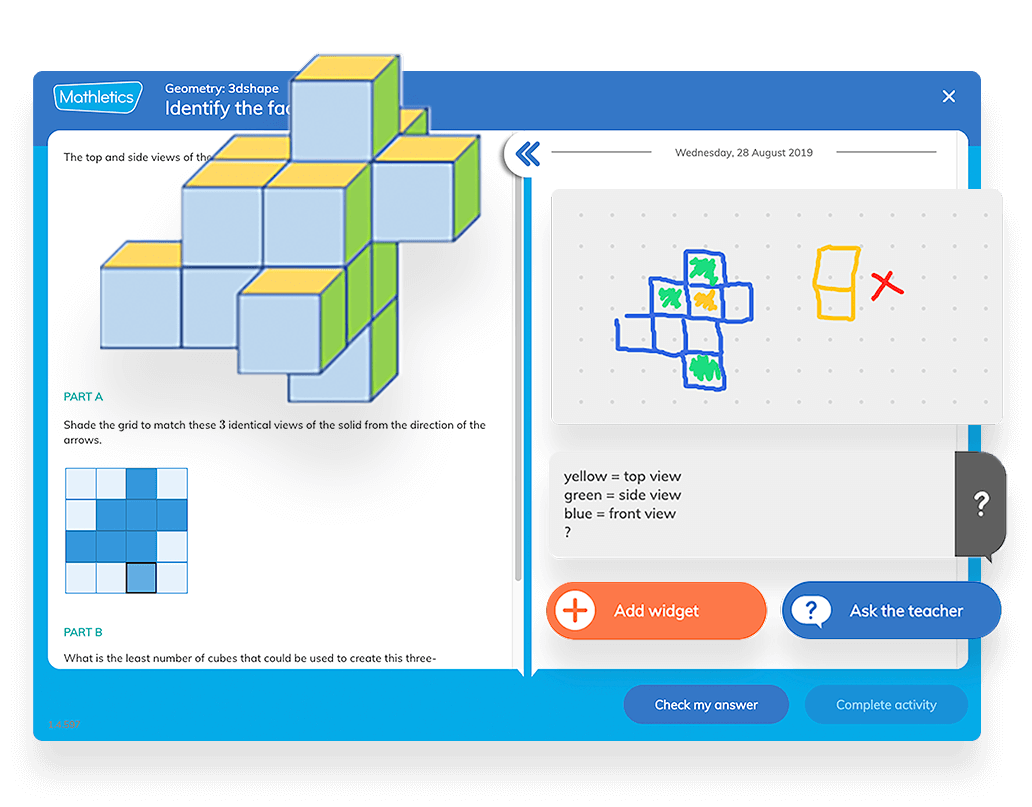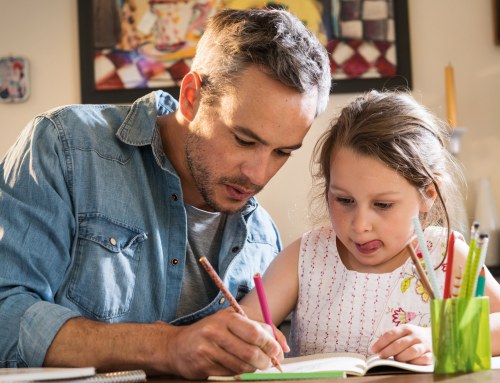While all parents are teachers in their own way, most of us will admit that we leave the core of our child’s education to classroom professionals.
Here’s what you can do to prepare for home learning so that you are ready to support your child’s needs with confidence.
Create a designated space for learning at home
Designated is the key word here.
Classrooms work because students enter them knowing that they are made for learning, while playtime or catch ups with friends happen outside. Do your best to replicate the same distinction in the home, and you’ll be one step closer to maintaining the structure associated with school-based learning.
Set up a clear surface which contains all the stationery and devices that they’ll need for learning. This might be a desk if they have the luxury, or a repurposed kitchen bench or table without the general family clutter that tends to gravitate to these areas.
Take active steps to reduce potential distractions as well. The whole family might have to abide by a reduced ‘non-essential’ screen-time policy.
Having said that, it’s a good idea to supervise their online activity or at least occasionally check. Don’t let them hide away behind the bedroom door!
Know where to find your child’s teacher and learning material
You don’t have to take over straight away — your child will still have set work and a teacher to support them. Contact the school so you have their teacher’s contact details ready at hand, and ask them to keep you updated on their work. They will be your first port of call if you have questions or concerns during the home-learning period.
Also, ask your child what work has been provided for them to complete.
Some teachers will send students home with packets of worksheets and others will be relying on an online learning platform where they can assign work remotely. Make sure you have access to whatever resources your child has been given. If you need access to an online program, ask their teacher for login details.
Remember: Your child would not be the first to claim that they’ve been left with ‘nothing to do’ while a full support package lies in a crumpled heap in their school bag. If your child is unclear or vague about what instructions they were left with, it’s worth getting in touch with their teacher to double check.
Establish a routine for learning at home
Lock in some devoted hours for learning in the morning, as any teacher will tell you that motivation and effort begin to go downhill after lunch. An afternoon off might even be a useful incentive.
Don’t forget that your child will also be expected to handle multiple subjects and different sets of material throughout the day, so it’s important to schedule some breaks in between as well. Again, keep them regular so that your child comes to see it as a predictable routine not unlike a normal school day.
Discuss expectations for home learning with your child
School closure presents a golden opportunity for you to get to know your child’s learning in a way that most parents never manage.
Talk to them to get a sense of what they need from you. Here are some questions you might ask:
- What subjects do you look forward to at school?
- What do you want to learn more about?
- What have you been finding difficult at school?
- What sorts of activities does your teacher do which you find helpful/enjoyable?
This can give you a better understanding of how to support them and gives you an insight into how your child learns.
That’s an invaluable asset for any parent.
Plan activities that support learning at home
With your child learning at home, you have the unique ability to integrate education with home life in a way that most classroom teachers can only dream of.
Start thinking of ways you can involve your child in everyday home activities that promote learning. These might be:
- Cooking or baking a recipe, paying attention to measurement and ratio
- Counting small sums of money
- Cleaning and having your child arrange and classify items in their correct place and according to patterns — a great task for spatial awareness
- Craft activities that require your child to think creatively in a hands-on context
You could also plan for some open-ended and explorative activities based on your child’s passions. For example:
- Writing a story, with a challenge to complete a certain number of chapters per week
- Researching a topic of interest and then delivering a mini presentation
- Setting some personal goals with an EdTech app or game
- Creating an artwork or craft piece inspired by a famous example.
Remember, you don’t need to take on the role of the classroom teacher with curriculum-aligned, content-heavy material. Any activity that promotes learning while being fun and engaging is a good use of your child’s time.
Factor in some exercise
Learning at home can mean more sedentary time than usual, so it’s important to keep your child physically active — regular exercise also correlates with better learning capacity.
Break up the inactivity by running a race together, skipping, kicking a ball or playing a game. Get creative. Chances are you’ll be craving a bit of exercise too if you are also working from home or stuck indoors.
Keep expectations realistic
Teachers, parents, schools, students — everyone is feeling the pressure during such an unprecedented disruption.
But let’s remember that no one could have planned for this. The best we can do is to ensure that our kids continue to feel safe, secure and curious about learning — whatever form that might take outside the classroom.
Yes, they will most likely be a bit bored from time to time. But that doesn’t mean there isn’t something to be said for exploring a new way of learning, getting some extra time with parents and bringing education into the home environment.








